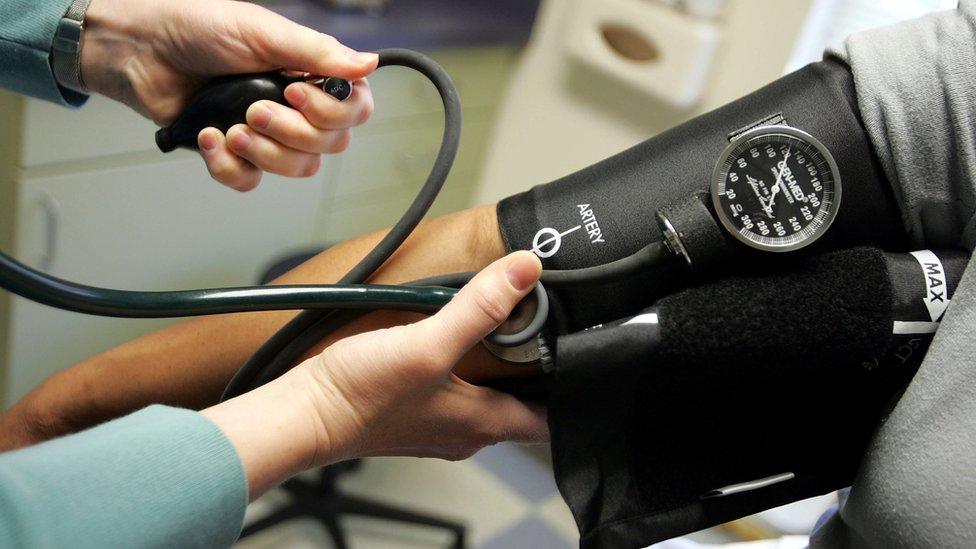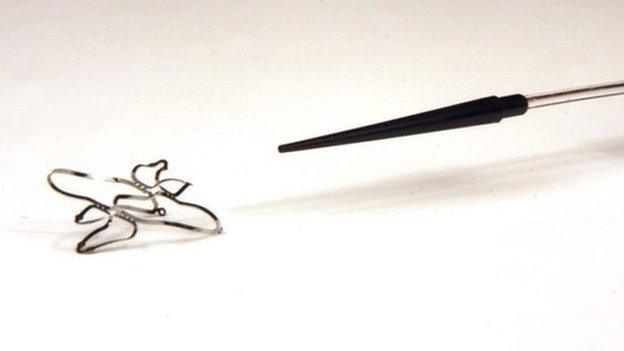Blood pressure treatment 'can reduce heart disease risk'
- Published

The current recommendation for blood pressure in healthy adults is 140/80
New research has shown that aggressive treatment of high blood pressure can significantly reduce risks of heart disease and death in people over 50.
The US National Institutes of Health (NIH) study found the risk of heart disease fell by about 30% when subjects were asked to lower blood pressure beyond current recommendations.
The results were so conclusive that the NIH ended the study a year early.
Experts have disagreed on how to control blood pressure as people age.
"More intensive management of high blood pressure in people 50 years and older can save lives and reduce cardiovascular complications such as heart attacks," said Dr. Gary Gibbons, director of the NIH's National Heart, Lung and Blood Institute, which sponsored the study.
The current standard for systolic blood pressure - the greater of the two numbers that measure blood pressure - is 140mmHg. The diastolic standard is 80mmHg.
Leading factor in deaths
However, researchers in the study adjusted participants' medication so their systolic pressure became 120mmHg, achieving big reductions in heart attacks, heart failures and strokes.
Systolic blood pressure is measured when the heart muscle muscle is working. Diastolic blood pressure is measured when the heart muscle is resting and refilling with blood.
It is too early to know if the study will change the current guidelines. Researchers advised people to discuss any changes to their blood pressure with their doctors.
According to the Centers for Disease Control and Prevention (CDC), high blood pressure can cause heart disease and stroke, which are two of the leading causes of death in the US.
About 70 million adults in the US - or one in three Americans - have high blood pressure, the CDC says.
- Published23 January 2015

- Published26 March 2014
